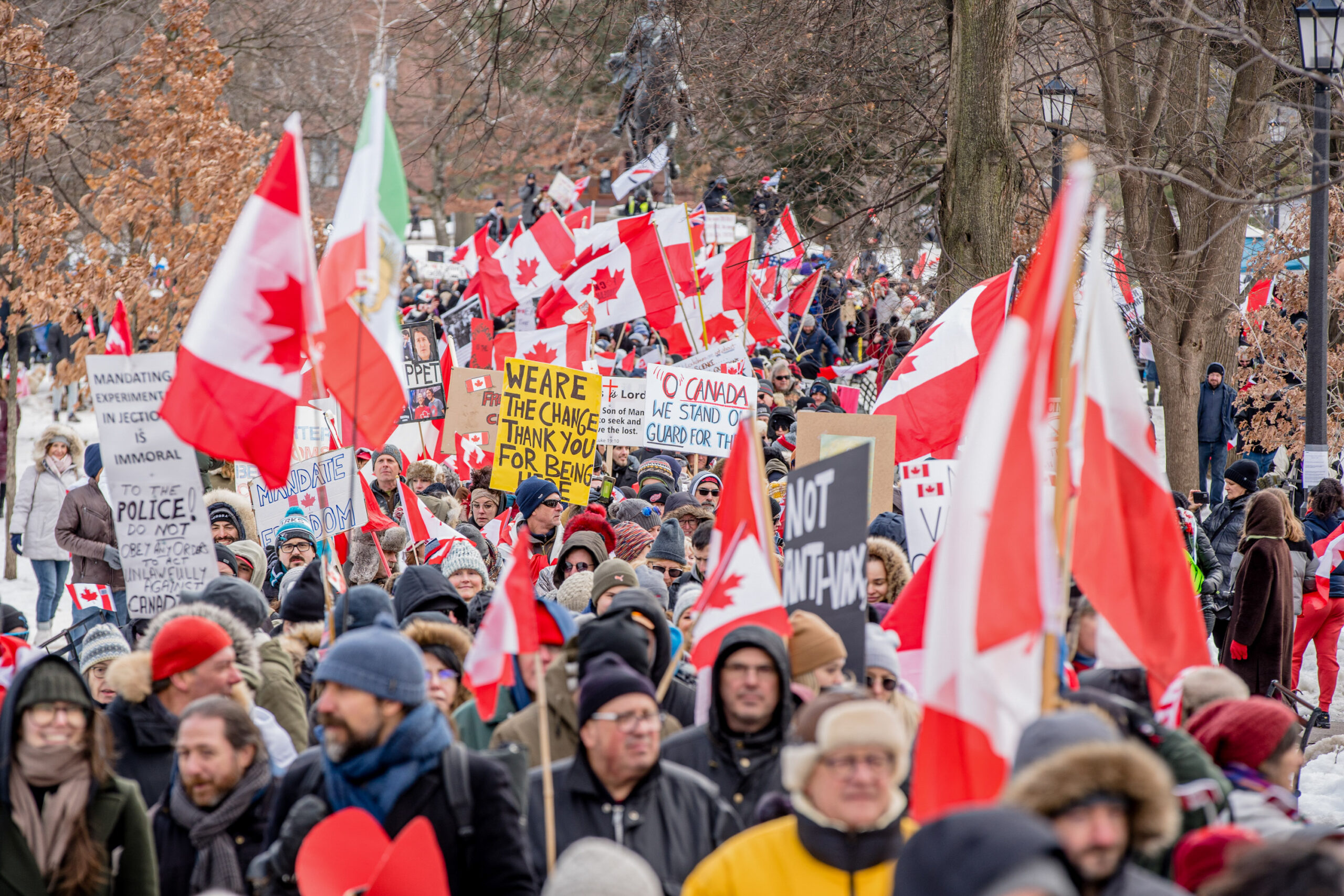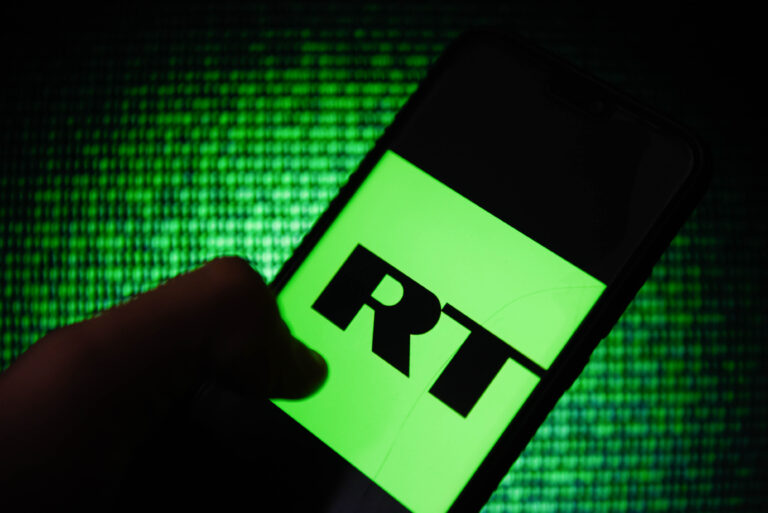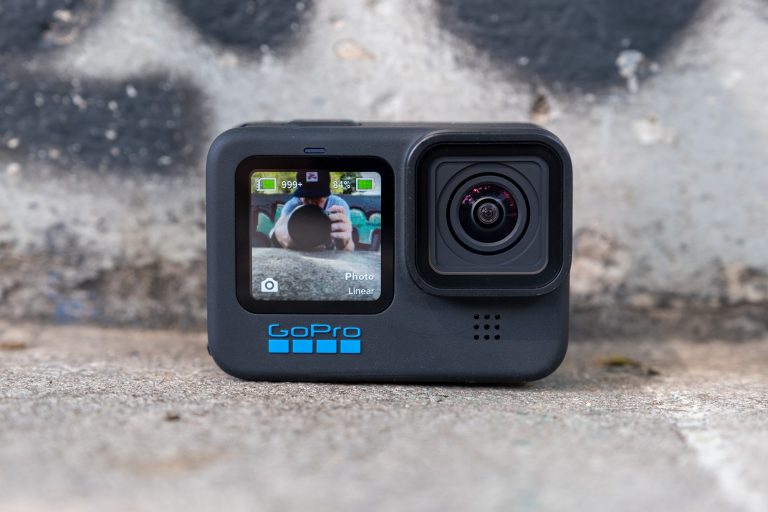Canada uses Emergencies Act to reign in ‘Freedom Convoy’ crowdfunds
Following weeks of occupation that have paralyzed the nation’s capital and other cities throughout the country, Prime Minister Justin Trudeau today invoked Canada’s Emergencies Act to respond to the “Freedom Convoy” protests. The act grants the federal government additional temporary powers to deal with critical situations and has never been used since its creation in 1988. In a press conference Trudeau said he would use the Emergencies Act to reign in the protests through several methods — among which is an expansion of Canada’s money-laundering laws to cover crowdfunding platforms and cryptocurrency transactions.
Starting today, Canada will require that crowdfunding companies register with the Financial Transactions and Reports Analysis Centre of Canada (FINTRAC) and report suspicious payments. The government has also empowered banks to freeze funds they believe are being directed to “Freedom Convoy”.
“We’re not using the Emergencies Act to call in the military,” Trudeau said. His father, Pierre Elliot Trudeau, famously invoked the War Measures Act, the precursor to the Emergencies Act, to call in the Canadian Forces during the October Crisis in 1970.
The Guardian described convoy members’ “trucks and cars […] laying on their horns and snarling traffic” at all hours. Protesters have also been forcing their way into businesses while maskless despite mandates to the contrary. Outside of protesting in Ottawa and other cities throughout the country, the protestors have blocked critical border crossings between the US and Canada. The decision to invoke the Emergency Act comes shortly after the Royal Canadian Mounted Police arrested 11 people linked to the protest and seized their cache of guns and other weapons, according to the New York Times.
Funding for the protest has come from a variety of sources, including GoFundMe. Before the company suspended the Freedom Convoy’s campaign, it had raised more than $10 million CAD (approximately $7.88 million USD). GoFundMe refunded all donors after the company determined the campaign violated its terms of service. Since then, supporters of the Freedom Convoy have turned to other crowdfunding platforms, including GiveSendGo. On Sunday, the site was hacked and personal information of those who contributed to the campaign was leaked online. Analysis by extremism researcher Amarnath Amarasingam indicated that 56 percent of the donors who contributed to the campaign came from the US.
Once invoked, the Emergencies Act takes effect right away. However, the government must go to Parliament within seven days to obtain support for the action from both the House of Commons and Senate of Canada. If either body votes against the motion, the state of emergency is revoked. Trudeau’s ruling Liberal Party does not control the majority of seats in the House of Commons and will need to obtain the support of at least one of the country’s other federal parties to pass the motion. The Emergencies Act also cannot be extended indefinitely.
“I know people are frustrated. I hear it. You have the right to voice your frustration, even your anger at government policies,” Trudeau said. “But blocking streets and critical infrastructure, and depriving your neighbors of their freedom, is a totally different matter. It’s time to stop.”
In the more than two weeks since the “Freedom Convoy” descended on Ottawa, Canada’s capital city has been blocked by trucks and cars that have made life for residents difficult. Those involved in the movement claim to be protesting vaccine passports and mandates, but there’s those complaints have in many cases commingled with broadly anti-government sentiments.
James Bauder, the founder of Canada Unity, one of the organizations at the center of the protests, has said on Facebook that Justin Trudeau should be tried for treason. On its website, Canada Unity published a “memorandum of understanding” that demanded the Canadian government rescind all vaccine mandates or “RESIGN their lawful positions of authority immediately.” In a video he posted to social media, Bauder said it was his hope the MoU would persuade Canada’s voting oversight agency to trigger an election — a power it constitutionally does not have. On February 8th, the group “withdrew” the document, stating at the time it did not want “any unintended interpretations to continue.”
All products recommended by Engadget are selected by our editorial team, independent of our parent company. Some of our stories include affiliate links. If you buy something through one of these links, we may earn an affiliate commission.





